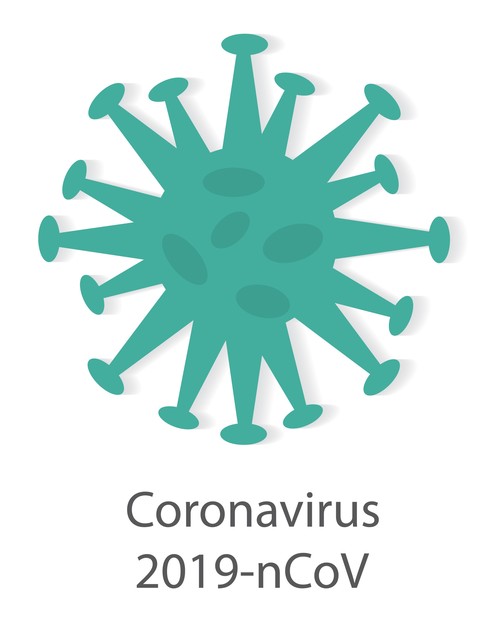What is Coronavirus?
Coronavirus (CoV) is a type of large family virus that causes illness ranging from the common cold to more life-threatening and severe diseases such as MERS (Middle East Respiratory Syndrome)-CoV and SARS (Severe Acute Respiratory Syndrome)-CoV.
nCov i.e., novel Coronavirus a newly found strain of a virus which has not been known to the human previously. This virus is transmitted between animals and humans, hence it is a zoonotic virus.
After further investigation, it was found that SARS-CoV was transmitted from civet cats and MERS-CoV was transmitted from dromedary camels to humans. Several other types of Coronavirus are present in animals but have not infected humans yet.

MERS appeared in the Middle East first in 2012 and then to other countries like Africa, Asia, and Europe. In 2014, the first American who just had been to Saudi Arabia was diagnosed with MERS, then other cases were found from Indiana and Florida. In Korea, the MERS outbreak happened in 2015. SARS outbreak happened in 2003 and 744 people died. Now, WHO identified a new type of Coronavirus outbreak in China during late 2019 and early 2020 (2019-nCoV).
How does the Coronavirus infection occur?
Transmission of Coronavirus to humans may occur when one comes in direct contact with infected people or animals. The recent outbreak of Coronavirus in China occurred when an old man bought infected seafood. Coronavirus is also transmitted through coughing, sneezing. This infection can also easily affect people who come in direct contact with contaminated bodies.
What are the symptoms of Coronavirus?
Signs and symptoms of Coronavirus are:
- Runny nose
- Cough
- Sore throat
- Fever
- Pneumonia
- Cardiovascular symptoms may also show up in old people, kids, and in those whose immune system is weak.
- Shortness of breath
- SARS (Severe Acute Respiratory Syndrome)
- MERS (Middle East Respiratory Syndrome)
- Kidney failure
- Even death

How is Coronavirus infection detected?
If the symptoms persist longer than usual then the health care provider may ask to get the lab tests done including the cultures of nose and throat. In some cases, the infected individual won’t know that it is coronavirus because the symptoms are like common cold-causing viral infections such as rhinovirus.
What is the treatment of coronavirus infection?
There is no specific antiviral treatment recommended for 2019-nCoV infection. People infected with 2019-nCoV should receive supportive care to help relieve symptoms. For severe cases, treatment should include care to support vital organ functions.
People who think they may have been exposed to 2019-nCoV should contact the healthcare provider immediately.
How can Coronavirus infection be prevented?
The vaccination for Coronavirus is not there hence the prevention for this virus has to be done in the same way the things are done to avoid or prevent common cold like:
- Washing hands thoroughly with soap and warm water
- Using alcohol-based sanitizer
- Keeping your hands away from eye, mouth, and nose
- Avoid contact from the person who is infected
- Get plenty of rest
- Drink fluids
- Take over the counter medication for the symptoms if any
- Humidifier or steamy shower
- Take care that meat and eggs are cooked thoroughly

Questions answered by trusted doctors

Did you know?
Coronavirus Helpline
Coronavirus Helpline: the Government of India has issued a helpline number, which is responsive 24x7 and the representative will provide the caller with the information about the Coronavirus and few preventive measures. Also, the government asked the patients to come forward for reporting Coronavirus Symptoms. The advisory has been issued to examine all the passengers flying from China.
WHO Director-General’s opening remarks
WHO Director-General’s opening remarks on a technical briefing on 2019-nCoV: “While 99% of cases are in China, as this doesn’t mean it won’t spread but lets act on this window of opportunity.” Further adding on “There is a window of opportunity because of the strong measures China is taking at the epicenter, at the source. So let’s not miss this window and use this opportunity to prevent further spread and control it.”
Further to stop the spread of the virus
Further to stop the spread of the virus, the international community has launched a US $675 million for preparedness and responsive plan which covers the months from Feb through April 2020. The plan is known as “The Strategic Preparedness and Response Plan” (SPRP) which lays out the activities and resources needed by the global health community, including WHO. The plan focuses on the rapid establishment of international co-ordination and support, scaling up the country’s readiness and response, to accelerate priority research and innovation.
Related articles
Phimosis is a health condition in which the foreskin is not retracted or pulled back from around the tip of the penis.
Dengue is a debilitating, painful, flu-like mosquito-borne tropical illness. Find out more about Dengue fever symptoms, treatment, mosquito, vaccine and tests. Get information, videos, and facts about Dengue on Health-Wiki | Practo
Kidneys are a pair of organs that are responsible for filtering out the waste products from the body. Not only that, but they also have a role in electrolyte balance maintenance, hormonal regulation, regulation of blood pressure and RBC synthesis.
I can understand your concern.
I'm sorry but at this place there is not much we can say about it due to space constraints.
There is a very good article about coronary virus in Wikipedia.
You can go through it.
It will be more than satisfy your curiosity about it.
Best regards.
Dr. Anil Kumar Jain.
Bangalore.